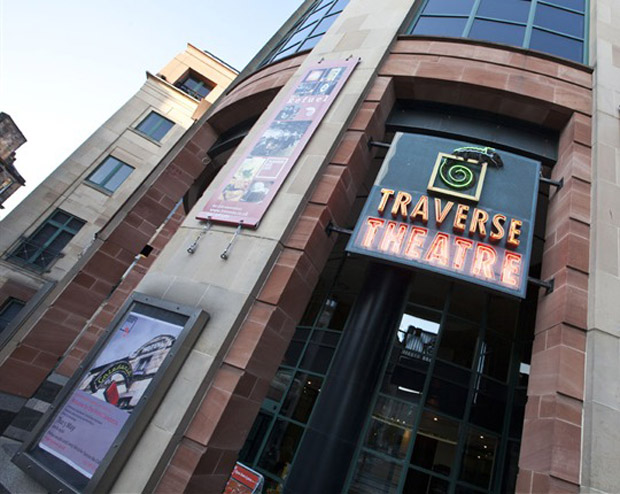Three months after settling into the Traverse from Pentabus Theatre, Orla O’Loughlin chats to us about the move from touring to venue-based theatre and what her outlook is for the Traverse’s programmes and directives.
O’Loughlin explains that she “wanted to run a building. I think that’s because I was trained at the Donmar Warehouse and the National Theatre. I then went on to be an Associate Director at The Royal Court. My background was about being a member of a team who ran a building. I love that sense of home and the capacity to host people and have a bar and a restaurant. It’s part of the whole cultural offer. In a weird way, it’s like coming home”.
When O’Loughlin arrived however, it was essentially straight down to business: “As well as being a producer of new writing, we’re a Festival theatre”, O’Loughlin says, “so in August we have a programme that’s very popular and well-respected internationally which is inundated with interest. Then the rest of the year we’re programming our Spring and Autumn seasons so we’re spinning many plates. I think it’s fair to say we punch above our weight in the quantity and quality: we have dance, music, manipulate, a bit of magic this year. The spectrum is quite dizzying, and I can only embrace that and celebrate it”.
But O’Loughlin still wants to utilise her experiences from working with touring companies and writers. She explains that she’s “very interested in the Traverse looking outwards and working with a range of different partners and organisations. But at the centre of everything is the writing – that is the beating heart of the work. We’ve just appointed a temporary Associate Director so I’m very keen for writers to get hands-on experience with directors if that’s something that they find useful. My experience is that they do, but obviously if a writer works best alone then that’s fine, this isn’t a set model. It’s about support, encouragement and challenge”.
O’Loughlin is only the second female Artistic Director of the Traverse in its 49 year history – something which could symbolise its push for progressive opportunities but to read too much into this is perhaps slightly archaic. O’Loughlin explains that when she attended “the Federation of Scottish Theatre conference, there was by far a majority of women. And looking around my own organisation, by far the people working are women. We have a joint Chief Executive now and I don’t think it’s that unusual anymore”.
Looking ahead, O’Loughlin is keen to “open the doors and invite people in at all stages of development. You can book a meeting with me; you can talk to emergent writers about your first break. I’ve only been here 3 months so it’s an ongoing process for me and I hope it continues to be”.
